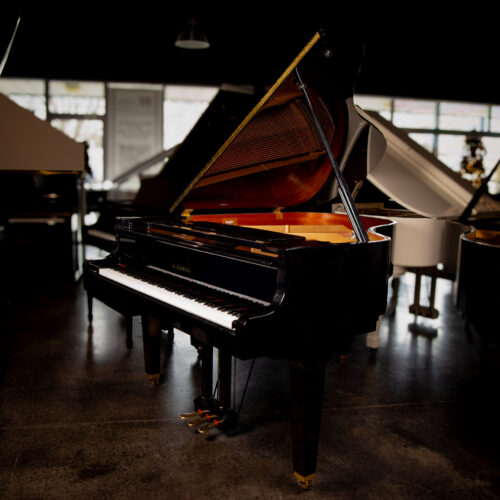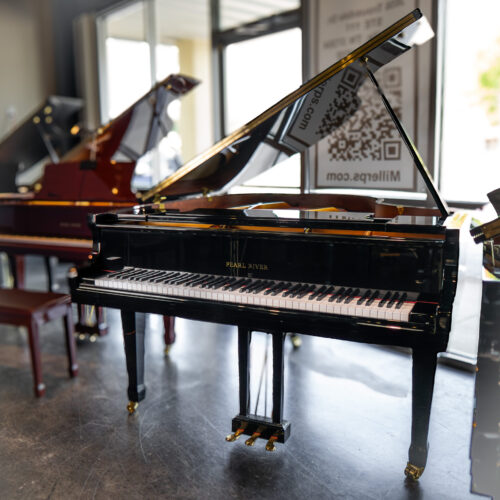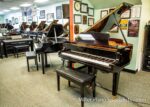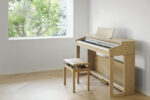At Miller Piano Specialists, we get a myriad of questions from both first-time piano owners as well as those who have owned pianos for years regarding where in the home is the best location for a piano. While there is no one right answer, there are a variety of factors to consider in order to help you make the best choice when placing a piano.
First, it is important to differentiate between acoustic and digital pianos. A digital piano can be placed literally anywhere with almost no worry about negative effects to the piano. The only consideration that needs to be made for a digital piano is that if it is kept in direct sunlight for months or years at a time, the finish on the cabinet will eventually fade. But that is an aesthetic concern, and the piano will continue to play the way it should no matter what.
For an acoustic piano, there are a few other factors that need to be taken into consideration. The wear and tear from direct sunlight will affect not just the finish but also many other aspects of the piano. Anywhere with constant hot or cold air surrounding or blowing on the piano will, over time, negatively affect not only the tuning of the piano, but the action, since many of the mechanical features of a piano are made out of wood. Sunny windows, spaces directly under a heat or air vent, or directly next to a fireplace that undergoes frequent use would all be poor choices for where to place a piano, since humidity and temperature would constantly be changing.
Beyond those factors, a piano should be placed in your home wherever is most comfortable. If it is not in a comfortable place, you will probably not want to play it. Hard floors or carpeted floors do not make much of a difference—pianos tend to play louder on hard wood floors, but if it is too loud, an area rug will help alleviate the problem and also protect your floors. Additionally, the old rule of not placing a piano on an outside wall does not usually hold true, unless your house has unusually poor insulation. With the insulation in modern homes, most walls are perfectly acceptable places to keep your piano.
At Miller Piano specialists, we are here to answer all of your piano-related questions. If you need help choosing a piano or maintaining the one you already have, contact us today! Give us a call at (615) 771-0020, or visit our website at millerps.com for more information.







